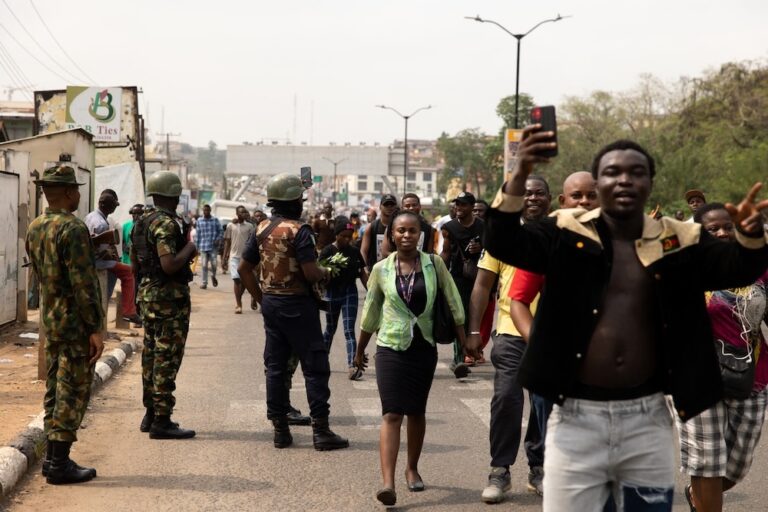(ARTICLE 19/IFEX) – The following is an ARTICLE 19 press release: RESOLVING NIGER DELTA CRISIS IS LITMUS TEST OF DEMOCRACY IN NIGERIA, CLAIMS RIGHTS GROUP With the handover to civilian rule in Nigeria just days away, the international rights group ARTICLE 19 today released a report raising serious concerns about the continuing lack of safeguards […]
(ARTICLE 19/IFEX) – The following is an ARTICLE 19 press release:
RESOLVING NIGER DELTA CRISIS IS LITMUS TEST OF DEMOCRACY IN NIGERIA, CLAIMS
RIGHTS GROUP
With the handover to civilian rule in Nigeria just days away, the
international rights group ARTICLE 19 today released a report raising
serious concerns about the continuing lack of safeguards for human rights in
the country. A case in point is the explosive situation in the Niger Delta
region, where local communities continue to struggle for recognition of
their basic rights and to have their say in the face of official harassment
and censorship.
Andrew Puddephatt, Executive Director of ARTICLE 19 said:
“The crisis in the Delta Region is a microcosm of the continuing struggle of
Nigerians to make their voices heard. If the new civilian government fails
to hear such voices, peaceful democratic development could be under serious
threat. ARTICLE 19 will be urging President Obasanjo to show the will
required to set Nigeria on course for a better future.”
In the report, Censorship and Democratic Transition in Nigeria (ARTICLE 19,
May 1999), ARTICLE 19 analyses the structure of censorship in Nigeria, with
particular emphasis on the Niger Delta region. Recent abuses of power by the
authorities, including politically-motivated arrests of journalists and
trade union activists and awards of lucrative oil contracts to military
officers, illustrate how far there is to go before there is honest, just and
democratic governance in Nigeria.
ARTICLE 19 raises serious concerns over the lack of progress on law reform
and observance of human rights during the transition to civilian rule
presided over by General Abubakar. The organisation lays down concrete steps
which the new civilian administration, oil companies operating in Nigeria
and the international community must take in order to re-establish the rule
of law, uphold human rights standards and ensure that communities’ voices
and rights are recognised throughout Nigeria.
The report also stresses the need for continuing scrutiny of the human
rights situation in Nigeria by the international community. Andrew
Puddephatt said:
“Continuing human rights abuses in the Niger Delta, deeply flawed elections
in February 1999, and the lack of substantial legal and institutional
reforms during the transition process are evidence that the race to take
Nigeria off the danger list is premature, since little has changed in terms
of access to resources, justice and democracy. “


